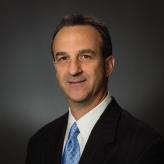Broad support for overturning Ariz. town's targeted speech restrictions
WASHINGTON – The U.S. Supreme Court this week received numerous friend-of-the-court briefs opposing government discrimination against the speech of churches. The briefs include support from the federal government, several state attorneys general, religious liberty groups, Christian denominations, and others.
The briefs were filed in Reed v. Town of Gilbert, an Alliance Defending Freedom lawsuit against a Phoenix suburb that applies stricter rules to church signs than it does to political signs and other noncommercial signs. ADF attorneys filed their opening brief on behalf of Good News Community Church in Gilbert on Sept. 15.
“No law should treat the speech of churches worse than the speech of other similar speakers,” said ADF Senior Counsel David Cortman. “As the briefs filed this week indicate, the Supreme Court’s decision may have broad implications for free speech beyond the facts of this situation alone. We appreciate all those who filed briefs in this case that side with constitutionally protected freedoms rather than selective treatment of speech by government.”
The new briefs add to those filed in November that asked the high court to take the case. Eugene Volokh of the UCLA School of Law represented seven ideologically diverse law professors – including Nadine Strossen, professor of law at New York Law School and former president of the American Civil Liberties Union – in one of those briefs, which asked the Supreme Court to rule in favor of the church.
The lawsuit asks the Supreme Court to put the brakes on a free speech test used by some courts that allows the government to decide what speech is more valuable and thus entitled to greater protection under the First Amendment. The test improperly excuses discrimination so long as the government says its motive is good. The U.S. Court of Appeals for the 9th Circuit used that test to determine that Good News Community Church’s religious signs are far less valuable than what the town calls “political” and “ideological” signs, thereby justifying the town’s strict limits on the church’s signs.
Under the Arizona town of Gilbert’s ordinance, political signs can be up to 32 square feet, displayed for many months, and unlimited in number. An ideological sign can be up to 20 square feet, displayed indefinitely, and unlimited in number. The church’s signs and some other non-profit, event-related signs can only be six square feet, may be displayed for no more than 14 hours, and are limited to four per property.
“The government cannot excuse unlawful discrimination by saying that it has an innocent motive for it,” said ADF Senior Legal Counsel Jeremy Tedesco. “To excuse content-based discrimination whenever the government claims to have a ‘good motive’ would give government officials the authority to drive certain ideas or viewpoints from the marketplace whenever they decide they want to.”
- Pronunciation guide: Tedesco (Tuh-DESS’-koh)
Alliance Defending Freedom is an alliance-building, non-profit legal organization that advocates for the right of people to freely live out their faith.
# # # | Ref. 11808
Related Profiles


